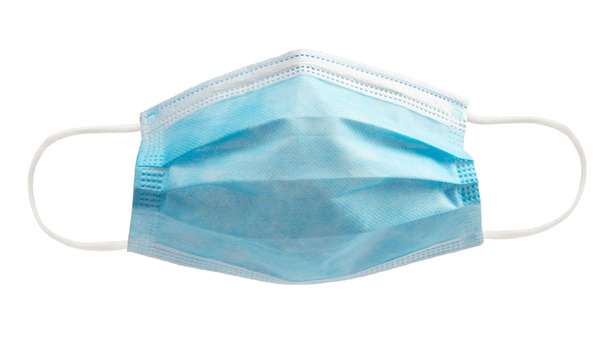|
Company News |
Face Masks and Surgical Masks for COVID-19: Manufacturing, Purchasing, Importing, and Donating MasksIssuing time:2020-07-03 18:39Author:FDA.GOVSource:FDA
In general, masks are used by the general public and health care personnel to prevent the spread of infection or illness. This page is for people and organizations who are new to working with the FDA. To help expand the availability of face masks and surgical masks, the FDA is providing regulatory flexibility, as described in our policy for face masks and surgical masks that is in effect during the COVID-19 pandemic. If you are interested in manufacturing these products, we urge you to review the FDA’s Emergency Use Authorization (EUA) for face masks (PDF-98KB) (issued April 24, 2020) and the FDA’s policy on face masks and surgical masks that is in effect during the COVID-19 public health emergency, and read the information on this page. You may send any specific questions to CDRH-COVID19-SurgicalMasks@fda.hhs.gov. Q: Which masks are medical devices regulated by the FDA? A. Face masks marketed to the general public for general non-medical purposes, such as use in construction and other industrial applications, are not medical devices. Face masks, when they are intended for a medical purpose such as source control (including uses related to COVID-19) and surgical masks are medical devices. Q: Is there a difference between a mask and a respirator? A: Masks and respirators both cover a wearer’s nose and mouth, but they differ in several aspects. Masks are loose fitting and may not provide full protection from breathing in airborne pathogens, such as viruses. Face masks (non-surgical masks) may not provide protection from fluids or may not filter particles, needed to protect against pathogens, such as viruses. They are not for surgical use and are not considered personal protective equipment. Surgical masks are fluid-resistant, disposable, and loose-fitting devices that create a physical barrier between the mouth and nose of the wearer and the immediate environment. They are for use in surgical settings and do not provide full protection from inhalation of airborne pathogens, such as viruses. Respirators are personal protective equipment that tightly fit the face and filter airborne particles to protect health care workers. They provide a higher level of protection against viruses and bacteria when properly fit-tested. This document does not address respirators. This CDC infographic explains the differences between surgical masks and N95 respirators. Q: I am interested in manufacturing face masks for COVID-19. What do I need to do? A: It will depend on the type of mask you want to manufacture. Masks for non-medical purposes are not medical devices and are not regulated by the FDA. The FDA has issued an EUA for face masks that meet certain criteria, including cloth face coverings recommended by the Centers for Disease Control (CDC). During the COVID-19 public health emergency, a face mask for a medical purpose that is intended for use as source control, is not labeled as a surgical mask, and is not intended to provide liquid barrier protection, may be authorized under the "umbrella" EUA for face masks without submitting documentation to the FDA if the face mask meets the eligibility requirements. A face mask authorized under this EUA must comply with the Conditions of Authorization (Section IV) of the EUA. Please note that this EUA does not authorize face masks for use as personal protective equipment. In addition to the "umbrella" EUA for Face Masks, as described in the FDA’s policy on face masks and surgical masks that is in effect during the COVID-19 public health emergency, the FDA does not expect manufacturers of face masks for a medical purpose that are not intended to provide liquid barrier protection to submit notification to the FDA before they begin marketing their product, or to comply with certain regulatory requirements, where the face mask does not create an undue risk in light of the public health emergency. Under the policy, the FDA believes face masks not intended to provide liquid barrier protection do not create such an undue risk where: The face masks include labeling that: Accurately describes the product as a face mask (as opposed to a surgical mask or filtering facepiece respirator); Includes a list of body-contacting materials (which does not include any drugs or biologics); and Includes recommendations and general statements that would reduce the risk of use. For example, recommendations against use: In any surgical setting or where significant exposure to liquid, bodily, or other hazardous fluids may be expected; In a clinical setting where the infection risks level through inhalation exposure is high; In the presence of a high intensity heat source or flammable gas; The face masks are not intended for any use that would create such an undue risk. For example, the labeling does not include uses for antimicrobial or antiviral protection, infection prevention or reduction, or related uses, and does not include particulate filtration claims. Q: I am interested in manufacturing surgical masks for COVID-19. What do I need to do? During the COVID-19 public health emergency, and as described in the FDA’s policy on face masks and surgical masks that is in effect during the COVID-19 public health emergency, the FDA does not expect manufacturers of surgical masks intended to provide liquid barrier protection to submit notification to the FDA before they begin marketing their product, or to comply with certain regulatory requirements where the surgical masks do not create an undue risk in light of the public health emergency. Under the policy, the FDA believes surgical masks intended to provide liquid barrier protection do not create an undue risk where: The surgical masks meets liquid barrier performance consistent with ASTM F1862 standardExternal Link Disclaimer and the Class I or Class II flammability requirement per 16 CFR Part 1610 (unless labeled with a recommendation against use in the presence of high intensity heath source or flammable gas); The surgical masks include labeling that accurately describes the product as a surgical mask and includes a list of the body contacting materials (which do not include any drugs or biologics); and The surgical masks are not intended for any use that would create such an undue risk. For example, the labeling does not include uses for antimicrobial or antiviral protection, infection prevention or reduction, or related uses, and does not include particulate filtration claims. Q: I would like to import masks for COVID-19. What do I need to do? A: To avoid delays of legitimate shipments, we urge importers to review Importing Supplies for COVID-19 and instructions to importers for important information about importing products, including face masks and surgical masks, to ensure that the proper documentation is submitted at the time of entry. The FDA is ready and available to engage with importers to minimize disruptions during the importing process. If you have questions related to the general importation process, you may email COVID19FDAIMPORTINQUIRIES@fda.hhs.gov. If you have questions regarding an active entry, please contact the FDA office covering your port of entry by visiting the FDA Import Offices and Port of Entry page. Q: I would like to purchase masks for COVID-19. How do I know if they are counterfeit or fraudulent? A: The FDA does not issue any kind of certification to demonstrate a manufacturer is in compliance with the FDA’s requirements. The FDA does not have an exhaustive list of all counterfeit or fraudulent products. To report fraudulent COVID-19 products to the FDA, please email FDA-COVID-19-Fraudulent-Products@fda.hhs.gov. Q: I would like to purchase masks for health care workers during the COVID-19 Pandemic. How can I get them? A: The FDA does not have a list of mask suppliers. If you are a health care facility, check with your supplier, distributor, or your local health department. Q: I would like to donate masks to health care workers during the COVID-19 pandemic. How can you help me with my donation? A: The FDA does not purchase or distribute masks. If you are interested in donating masks, please see COVID-19 Offer of Medical Supplies or Equipment. Q: I would like to reuse masks during the COVID-19 pandemic. What do I need to do? A: In this period of high demand for masks, there are conservation strategy to mitigate shortages of masks. Q: Can a mask claim conformance with a National Institute for Occupational Safety and Health (NIOSH) filtration efficiency standard? A: No. Masks cannot make any claims to meet a NIOSH filtration efficiency standard. Such claims can only be made for a respirator, when the respirator meets a specified filtration efficiency. Next Steps If you are still interested in manufacturing face masks and/or surgical masks for use during the COVID-19 pandemic, review these documents: FDA Documents Enforcement Policy for Face Masks and Respirators During the Coronavirus Disease (COVID-19) Public Health Emergency (Revised) Emergency Use Authorization for Face Masks (PDF- 98KB) FAQs on the Emergency Use Authorization for Face Masks (Non-Surgical) Surgical Mask and Gown Conservation Strategies: Letter to Health Care Providers N95 Respirators and Surgical Masks (Face Masks) including this section, Comparing Surgical Masks and Surgical N95 Respirators
Article classification:
Industry News
|


